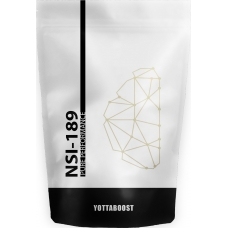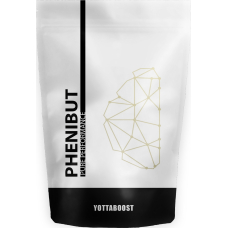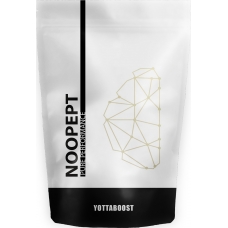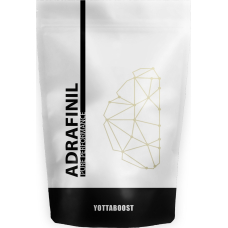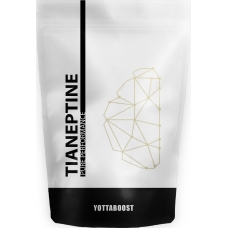NSI-189
- Product Code: XNS124
- Availability: In Stock
-
From 17.95€
Capsules 10mg
Capsules 20mg
Effects
- Reduce depressive symptoms
- Reduce anxiety
- Improve attention
- Improve memory
- Upregulates neurogenic factors in tandem with neurogenesis
- Promotes behavioral recovery in stroke
- Enhances cell proliferation and neurogenesis in stroke
Dosage
NSI-189 is generally well tolerated. In clinical trials, probants were given doses of up to 40mg daily and experienced fewer adverse effects when split across the day. Generally when trying any new supplement for the first time, it is recommended to start with a lower dose.
Administration
Studies have shown that food did not affect the efficacy of NSI-189, therefore it can be taken with or without a meal.
Side-Effects
The most common reported adverse effects are headaches, dizziness, somnolence. If such symptoms occur, it is recommended to reduce the dosage.
What is NSI-189?
NSI-189 Phosphate is an orally active novel molecular entity (benzylpiperazine-aminopyridine) that stimulates neurogenesis of human hippocampus-derived neural stem cells. Neurogenesis is believed to play an important part in learning, memory, emotion, stress, depression and other conditions.
- Chemical Name
- (4-benzylpiperazin-1-yl)-[2-(3-methylbutylamino)pyridin-3-yl]methanone
- Molecular Formula
- C22H30N4O
- Molecular Weight
- 366.509 g/mol
- Complexity
- 442
According to the World Health Organization (WHO), approx. 300 million people around the world suffer from depression [1]. Aside from genetics or psychological trauma, there are many factors that increase the risk of developing depression such as blood relatives with a history of depression, low self-esteem, sexual orientation, drug abuse, health condition, compulsive disorders and more. Today many also believe that stress can increase the chances to suffer depression because hippocampal cells are sensitive to stress which can lead to decreased neurogenesis, thus neurogenesis may be strongly linked to MDD. The symptoms of depression cause stress where sometimes the affected may not even notice, which creates a vicious cycle potentially worsening the condition.
How does NSI-189 work?
An increase in serotonin in the brain suppresses the corticotropin-releasing hormone (CRH), a peptide hormone, secreted by the paraventricular nucleus (PVN) of the hypothalamus in response to stress. The repression of CRH causes a decrease in neurogenesis. This is why typical antidepressants are selective serotonin reuptake inhibitors (SSRIs) [4] and their efficacy may be correlated to neurogenesis.
To the range of effects of NSI-189 also counts the improvement of cognitive functions. Most antidepressants only have a positive effect on mood but do not treat cognitive dysfunctions. The evaluation of the Cognitive and Physical Functioning Questionnaire (CPFQ) has revealed that, compared to placebo, NSI-189 significantly improved cognitive symptoms. It has yet to be studied further if this effect stems from the improved depressive symptoms or from increased neurogenesis.
What did studies on NSI-189 conclude?
NSI-189 is actively being investigated as a promising antidepressant, specifically in the treatment of major depressive disorder (MDD) and as a powerful stroke therapy. After a phase 1 clinical study carried out between 2012 and 2013 by Neuralstem, Inc. gave reason to further explore NSI-189 as an antidepressant due to positive results [2], a phase 2 clinical study of NSI-189 was completed in 2017. In summary the study revealed that NSI-189 significantly improved depressive symptoms with procognitive benefits such as improved attention and memory while appearing to be safe and well tolerated among all 220 male and female subjects aged 18-60 [3].
Contrary to standard antidepressants where a rapid return of depressive symptoms are observed after discontinuation, depressive symptoms were still improved 2 months after the discontinuation of NSI-189 following the ending of the trial. The results are based on the outcome measures evaluation of the Montgomery-Asberg Depression Rating Scale (MADRS), Symptoms of Depression Questionnaire (SDQ) and Clinical Global Impressions Improvement (CGI-I).
References
[1] - https://www.who.int/news-room/fact-sheets/detail/depression
[2] - https://www.ncbi.nlm.nih.gov/pmc/articles/PMC5030464
[3] - https://clinicaltrials.gov/ct2/show/NCT02695472
[4] - https://www.nimh.nih.gov/health/topics/mental-health-medications/index.shtml
[5] - https://journals.plos.org/plosone/article?id=10.1371/journal.pone.0017600
Tags: depression, stress, cognitive dysfunction
NSI-189 Reviews (9)
| Gaya | 10/07/2024 |
good stuff!!!, the only thing that works for me;I am glad I found this against anxiety! |
|
| Sonny | 14/05/2022 |
Really good with citicoline. |
|
| Florian | 30/07/2019 |
Wirkt sehr gut, heilt traumatische Hirnverletzung scheinbar sofort, bzw. sorgt für sofortige Linderung. |
|
| Juri Jurkovic | 03/06/2019 |
Alles gute ,nicht schlecht |
|
| Alejan Ector | 23/11/2018 |
buena calidad entrega rápida todo bien |
|
